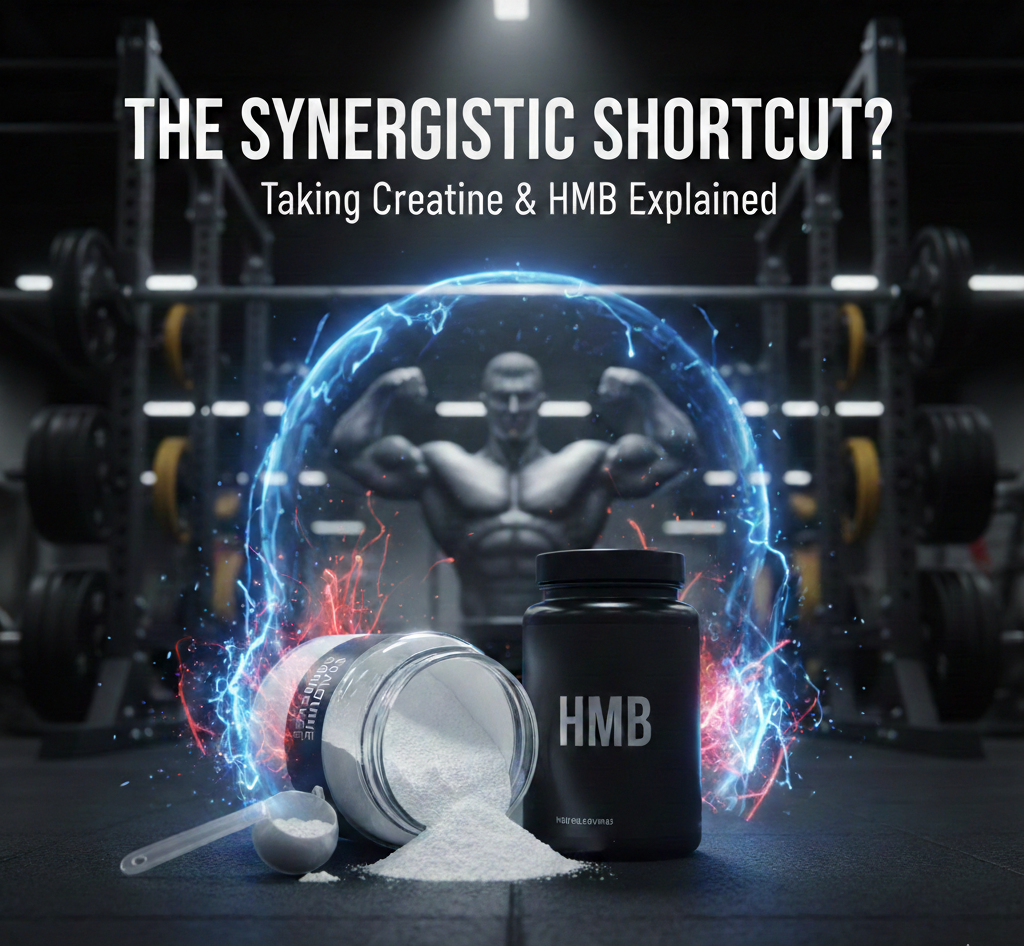Imagine a tiny biological switch that could potentially unlock the secrets of energy production and longevity. That’s AMPK for you.
AMPK, or AMP-activated protein kinase, is an enzyme found in nearly every cell of our body. It plays a crucial role in maintaining energy balance and metabolism.
This remarkable enzyme has captured the attention of scientists worldwide, as it appears to be a key player in regulating our body’s energy use and potentially extending our lifespan.
Understanding AMPK: The Cellular Energy Sensor
Think of AMPK as your body’s fuel gauge. It constantly monitors the energy status of your cells.
When energy levels drop, AMPK springs into action, activating processes that generate more energy and shutting down those that consume it.
This ability to sense and respond to energy fluctuations makes AMPK a critical component of cellular energy metabolism.
By regulating various metabolic pathways, AMPK helps maintain the delicate balance between energy production and consumption in our cells.
The Structure and Components of AMPK
AMPK is like a well-oiled machine, with each part playing a specific role. At its core is the catalytic subunit, which does the heavy lifting in terms of enzyme activity.
This subunit contains a kinase domain, the part responsible for transferring phosphate groups to other proteins, thereby altering their function.
Surrounding the catalytic subunit are regulatory subunits that help AMPK detect changes in cellular energy status and respond appropriately.
AMPK Activation: Triggers and Mechanisms

AMPK doesn’t just randomly decide to turn on. It responds to specific signals that indicate a need for action.
These signals can come from various sources, both within and outside the cell.
Exercise, for instance, is a powerful activator of AMPK. As we work out, our muscles use up energy, triggering AMPK to kick into gear.
Similarly, calorie restriction or fasting can activate AMPK, as the body seeks to conserve and efficiently use available energy.
Cellular Stresses and AMPK Activation
Cellular stress is like a wake-up call for AMPK. When cells face challenges that threaten their energy balance, AMPK steps up to the plate.
These stresses can include low oxygen levels, heat shock, or oxidative stress. Each of these conditions can alter the ATP to AMP ratio in cells.
As ATP levels drop and AMP levels rise, it’s a clear signal for AMPK to get to work and restore energy balance.
The Role of AMP in AMPK Activation
AMP, or adenosine monophosphate, is like a key that unlocks AMPK’s potential. When AMP binds to AMPK, it causes a change in the enzyme’s shape.
This shape change makes AMPK more active and more likely to be phosphorylated by upstream kinases, further enhancing its activity.
It’s a bit like a domino effect – AMP binding leads to activation, which leads to more activation, ensuring a robust response to energy depletion.
AMPK’s Impact on Energy Metabolism
Once activated, AMPK becomes a master regulator of energy metabolism. It’s like a skilled conductor, orchestrating various metabolic processes to optimize energy production and use.
AMPK promotes processes that generate ATP, such as glucose uptake and fatty acid oxidation. At the same time, it inhibits energy-consuming processes like protein and fatty acid synthesis.
This dual action helps cells quickly restore their energy balance and adapt to changing energy demands.
By influencing these key metabolic pathways, AMPK plays a crucial role in maintaining overall energy homeostasis in the body.
AMPK and Glucose Metabolism
When it comes to glucose, AMPK is all about efficiency. It enhances glucose uptake in tissues like muscles, ensuring cells have access to this vital energy source.
AMPK also improves insulin sensitivity, making cells more responsive to insulin’s glucose-lowering effects. This can be particularly beneficial for individuals with or at risk of type 2 diabetes.
By promoting glucose uptake and utilization, AMPK helps keep blood sugar levels in check and provides cells with the energy they need.
AMPK and Lipid Metabolism
AMPK is a key player in fat burning. It promotes fatty acid oxidation, the process by which fats are broken down for energy.
At the same time, AMPK puts the brakes on lipid synthesis, preventing the unnecessary production of fats when energy is scarce.
This dual action on lipid metabolism makes AMPK activation an attractive target for managing conditions like obesity and metabolic syndrome.
AMPK and Mitochondrial Function

Mitochondria are often called the powerhouses of the cell, and AMPK ensures these powerhouses are running at peak efficiency. It’s like a quality control manager for your cellular energy factories.
When AMPK is activated, it stimulates the creation of new mitochondria, a process known as mitochondrial biogenesis. This increases the cell’s capacity to produce energy.
AMPK also promotes the expression of genes involved in mitochondrial function, ensuring these cellular powerhouses have all the components they need to operate effectively.
By enhancing mitochondrial function, AMPK helps cells meet increased energy demands and adapt to metabolic challenges.
AMPK and Mitochondrial Biogenesis
AMPK is like a factory manager ordering more production lines. When activated, it stimulates the creation of new mitochondria.
This process involves increasing the expression of mitochondrial proteins and coordinating the assembly of new mitochondria.
By boosting mitochondrial numbers, AMPK helps cells ramp up their energy production capacity, preparing them for future energy demands.
AMPK’s Role in Longevity
The connection between AMPK and longevity is an exciting area of research. Scientists have found that activating AMPK can mimic some of the beneficial effects of calorie restriction, a well-known method for extending lifespan in various organisms.
AMPK activation appears to promote cellular health and resilience, potentially slowing down the aging process. It does this by improving energy efficiency, reducing oxidative stress, and promoting cellular repair processes.
Moreover, AMPK helps maintain energy balance at the whole-body level, which is crucial for overall health and longevity.
While more research is needed, the potential of AMPK as a target for promoting healthy aging is truly exciting.
AMPK and Cellular Senescence
Cellular senescence, the process by which cells stop dividing, is a hallmark of aging. AMPK may help slow this process by regulating cell growth and energy expenditure.
By promoting efficient energy use and cellular repair, AMPK may help cells maintain their function for longer, potentially delaying the onset of age-related decline.
This anti-aging effect of AMPK is an area of intense research, with potential implications for age-related diseases and overall longevity.
AMPK in Different Tissues
AMPK doesn’t work the same way everywhere in the body. Its effects can vary depending on the specific tissue or organ.
In skeletal muscle, AMPK promotes glucose uptake and fatty acid oxidation, helping to fuel muscle contractions. In adipose tissue, it enhances fat breakdown and reduces fat storage.
Understanding these tissue-specific effects is crucial for developing targeted therapies that leverage AMPK’s benefits while minimizing potential side effects.
Let’s take a closer look at AMPK’s role in two key tissues: skeletal muscle and the liver.
AMPK in Skeletal Muscle
In skeletal muscle, AMPK is like a fitness trainer, pushing the muscle to become more efficient. It’s activated during exercise, particularly during muscle contractions.
When activated, AMPK in human skeletal muscle promotes glucose uptake, enhancing the muscle’s ability to fuel its activities. It also stimulates fatty acid oxidation, helping muscles tap into fat stores for energy.
These effects make AMPK a key player in exercise physiology and metabolic health.
AMPK in the Liver
In the liver, AMPK acts as a metabolic traffic controller. One of its key functions is to inhibit gluconeogenesis, the production of new glucose molecules.
By putting the brakes on glucose production when energy is low, AMPK helps prevent unnecessary energy expenditure. It also regulates glycogen synthesis, helping to store glucose for future use.
These hepatic effects of AMPK make it an important target for managing conditions like diabetes and fatty liver disease.
AMPK Activators: Natural and Synthetic
Given AMPK’s potential benefits, there’s great interest in finding ways to activate it. Nature has provided us with several compounds that can act as AMPK activators.
Resveratrol, found in red wine, and berberine, used in traditional Chinese medicine, are examples of natural AMPK activators. These compounds have shown promising effects in various studies.
On the synthetic front, drugs like metformin, widely used for diabetes treatment, are known to activate AMPK. Researchers are also developing direct AMPK activators designed to target the enzyme more specifically.
While more research is needed, these AMPK activators hold promise for treating a range of metabolic disorders and potentially promoting longevity.
Conclusion: The Promise of AMPK for Health and Longevity
AMPK truly stands out as a master regulator of metabolism, influencing numerous vital pathways in our bodies. Its potential to impact health, energy levels, and even lifespan makes it an exciting target for future therapies.
As we continue to unravel the complexities of AMPK, we’re opening doors to new strategies for managing metabolic disorders, promoting healthy aging, and potentially extending our healthspan. And speaking of health promotion, let’s talk about a product that aligns with these goals: BerbaPrime by Health Nutrition.
Protect your health with BerbaPrime, a high-strength berberine supplement HCL 97% (1500mg) that offers a natural way to support your health every day. BerbaPrime supports a healthy metabolism, healthy cholesterol levels, and healthy blood sugar levels.
Used in traditional Chinese medicine for thousands of years, hundreds of studies have now revealed the extraordinary health benefits of berberine. This entirely natural, plant-based alkaloid is so powerful that scientists believe it could help protect against – and even help treat – chronic health conditions like high cholesterol, metabolic syndrome, diabetes, and heart disease – the leading cause of death worldwide.
Source link










